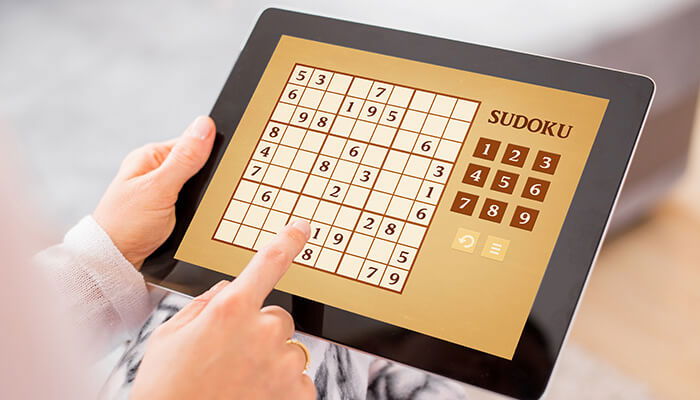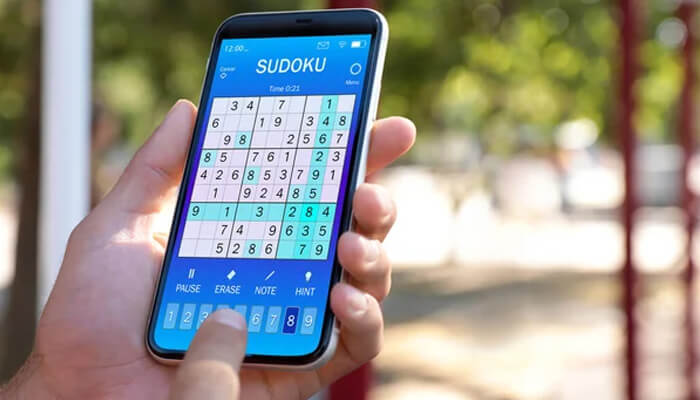If you’re tired of playing standard Sudoku, we can satisfy your need for a fresh challenge with our selection of the best Sudoku Variants. Sudoku puzzles come in various variants, each with somewhat different rules. We have listed the top Sudoku variants, including Sudoku Evil, Killer Sudoku, etc., in this article. Let’s discuss them in details.
1. Killer Sudoku
Killer Sudoku is one of the most well-known Sudoku variations. It is perfect for Sudoku experts because it is also pretty difficult. However, if you’re looking for a puzzle game that can tease your mind and offer you maximum fun, this game is an ideal option. Killer Sudoku has various names, including sumoku, Sumdoku, and addoku are a few additional names for Killer Sudoku puzzles.
Naturally, Killer Sudoku is more difficult to complete than regular Sudoku. Sudoku puzzle game generally has easy, medium, hard, and expert difficulty levels to choose from. This makes it easy to select a degree of difficulty that you can handle without having to use your thinking skill too much because of this. So both Sudoku pros and beginners might consider Killer Sudoku. If you play Killer Sudoku frequently and become an expert, you can play all of the levels of difficulty.
How to solve Killer sudoku
Using the “45 rule” is one of the finest approaches to solve the Killer Sudoku. The criteria require a total of 45 numbers in each column, row, and 3×3 square. Subtracting the cage quantities will make it simple to ascertain what is in that particular vacant cell. Putting some of the first numbers on the grid in this way is a brilliant way to start the game. As soon as you get them, you can keep revealing the game and adding more numbers.
2. Sudoku Evil
Similar to ordinary Sudoku, Sudoku Evil is played on a 9×9 grid. However, the only distinction is that it is the most difficult. Sudoku Evil is a challenging level that can only be solved by skilled Sudoku players. Simple logic or basic Sudoku knowledge cannot be used to solve this Sudoku type. You must understand how to use and have a deeper understanding of Sudoku solving strategies.
Despite being an exceptionally difficult Sudoku game level, many seasoned players favor Sudoku Evil because of how it tests the problem solving skill.
How to play Sudoku Evil
Traditional Sudoku and Sudoku Evil share a same fundamental concept. Making sure that no numerals from 1 to 9 are repeated in any of the columns, rows, or squares is the objective as you try to fill the grid entirely. When playing Sudoku Evil, there are usually only 4 or even less numbers on the grid. As a result, solving Sudoku Evil level is rather difficult.
Start by filling up the squares, columns, or rows that already have more numbers. These squares, rows, and columns are somehow simpler to solve.
You can utilize the X-Wing technique to solve Evil Sudoku. Use this clever Sudoku-solving strategy to remove applicants. When using this strategy, you must pay attention to the parallel columns and rows. You won’t need to pay much attention to squares. By using this method, potential numbers are eliminated.
3. Samurai Sudoku
This is also another popular variant of Sudoku. Samurai sudoku puzzles adhere to the traditional sudoku principles and have five overlapping sudoku grids. The rest of each board relies on the overlapping pieces while still adhering to the standard sudoku principles. In essence, it’s like playing five individual sudoku games simultaneously, with the exception that the center puzzle’s four outside corners match those of the middle puzzle’s four outer corners.
No guessing is necessary because each puzzle on Samurai Sudoku has a single distinct solution that can be discovered using only logic.
Rules of Samurai Sudoku
1. Five traditional 9×9 Sudoku sub-puzzles that are overlapping make up each Samurai Sudoku puzzle.
2. Each 9×9 sub-puzzle must be completed using the Sudoku rules, which state that every row, column, and 3×3 box must contain only digits from 1 to 9, with no repeating digits allowed.
3. There is just one single solution to solving each Samurai Sudoku puzzle.
4. Jigsaw Sudoku
In all the Sudoku variants mentioned above, the cages are squares. Jigsaw sudoku uses cages in a different configuration from the above-mentioned Sudoku variants.
The arrangements themselves are frequently so intricately interlocked that they resemble jigsaw puzzle pieces. This makes it possible to create some really intriguing puzzle patterns! Jigsaw sudoku puzzles can become especially engaging to look at and play when they have been colored. Jigsaw sudoku is more challenging to grasp and solve because most sudoku tips and tricks require the cages to be rectangles or squares.
How to play jigsaw sudoku
The game’s rules are as follows:
1. The numerals 1 through 9 must appear only once, in each row.
2. The numerals 1 to 9 must appear only once in each column.
3. The numerals 1 through 9 can appear only once, per sub-region.
These principles are fairly similar to the standard Sudoku rules, except in a Jigsaw Sudoku puzzle, the regions can take on any shape as opposed to the standard Sudoku puzzle’s 3×3 squares. There will always be nine squares, but any shape may be used.
While every sudoku grid is identical, the pattern of a jigsaw sudoku differ from one puzzle to another and can have a significant effect on how the puzzle is solved. This is one of the best aspect jigsaw sudoku because there are so many different grid patterns that are possible, and many of these have a distinctive character of their own determined by their geometry.
It is simple to understand how the puzzle gained its name “jigsaw sudoku” because to the areas’ uneven shapes. Jigsaw sudoku goes by several names, including Jigsawdoku, irregular sudoku, and many other names. It is one of the sudoku variations that is played more frequently.



